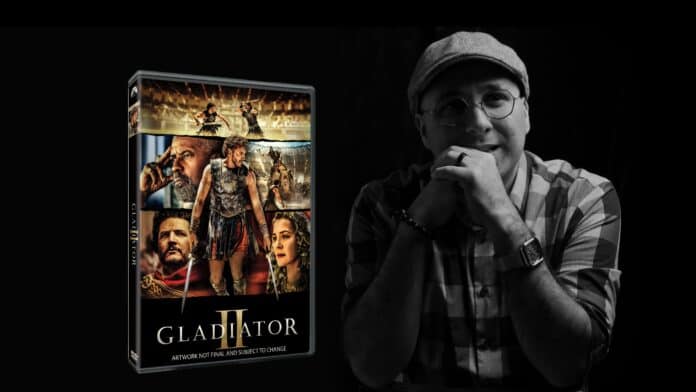A few days ago, I went to the theater to watch Gladiator 2. I was very excited because I am a big fan of the first movie. As an Amazigh, I felt a great sense of happiness when the movie opened with a battle in Numidia, and I saw the word “Numidia” appear on the screen. However, my happiness didn’t last long.
Just a few minutes later, I saw Jugurtha portrayed by a Black actor. This was disappointing to me. I understand that movies are not documentaries, and directors take creative liberties. For example, adding sharks to the Colosseum might not be historically accurate, but it can still be entertaining. However, casting a Black actor to play Jugurtha—a distinctly Berber historical figure—felt like an extension of an Afro-centrist narrative that erases North Africa’s indigenous identity.
The same issue arose with the portrayal of Macrinus, —a name which being derived from the Amazigh word Mukran, meaning “the chief” or “the elder,—. Both Jugurtha and Macrinus were Amazigh from Western North Africa, yet Ridley Scott cast Black actors for their roles. It was even more frustrating to see Macrinus—who was a skilled and strategic emperor—depicted as a hateful character. The film falsely claimed that he was a former slave (which he was not) and that he killed Geta to seize power.
In reality, Geta was killed by his own brother, Caracalla, during a power struggle. Caracalla himself was later assassinated by a soldier named Justin Martialis. Gladiator 2 ignored these historical facts entirely. Additionally, the film reduced Macrinus’s reign to less than a day, when in reality, he ruled for nearly a year in a significant period of Roman history.
As a North African and a Amazigh, what message am I supposed to take from this? That to become an emperor or an African ruler, one must first be a slave? That if a North African does rise to power, it must be through deceit or violence, and that their rule will be short-lived? These portrayals are not just historically inaccurate; they reinforce troubling stereotypes.
Beyond this, the film’s depiction of Berbers was lazy and inaccurate. They were shown speaking Arabic—a language that did not exist in North Africa at the time—and even using Islamic references, despite Islam not yet existing in that era. Their clothing also resembled Middle Eastern or desert attire rather than authentic Amazigh garments.
Hollywood continues to ignore the true identity of North Africans, often portraying us as either Arabs or Black Africans when we are neither. This disregard for historical accuracy and cultural authenticity is not just disappointing—it is a disservice to our heritage and history.

